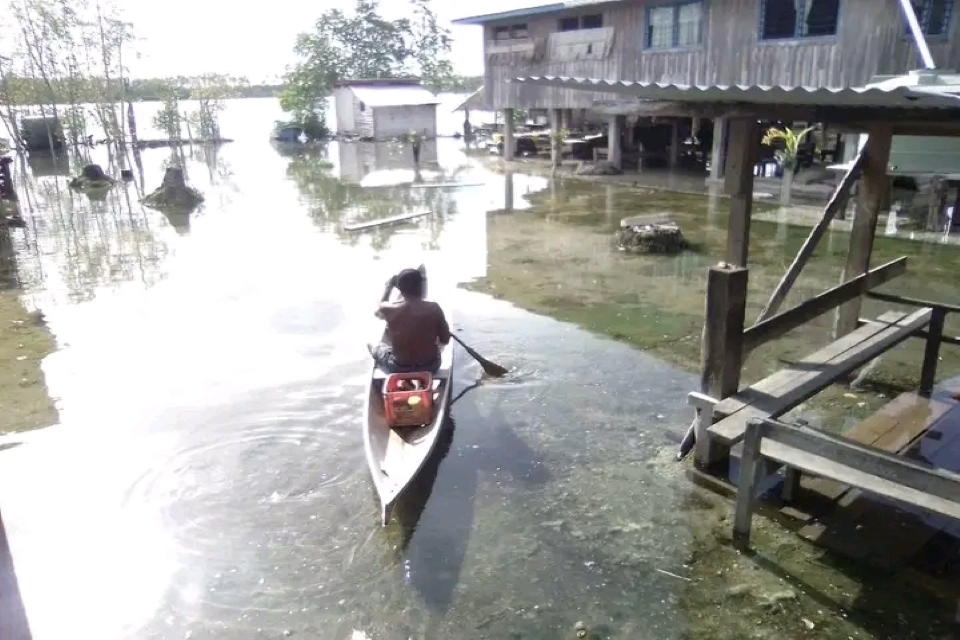BY JOHN HOUANIHAU
THE powers of nature are now troubling the rural population of Pipisu village in West Are’are, Malaita province.
Villagers of the Pipisu community are now turning to rice as their main source of staple diet since wild pigs have destroyed their food gardens; coupled with the impact of sea level rise on their livelihoods.
There has been a lot of evidence to prove the challenges and problems caused by the pigs’ destroying food gardens and sea-level rise flooding swamp taro gardens in community and the harsh realities associated with it, according to the resident of the Pipisu community, and primary school, Janet Rahe.
“The majority of people in the village depend very much on foods from their gardens for their daily meals, however as of last year (2022) things have turned out different as wild big started to intrude into our foods gardens.
“People have been faced with a shortage of stable food crops since last year and it has worsened until today.
“Due to the wild pig intrusion, many villagers have to move and relocated their gardens from highlands and mountains into the valley.
“In the past, most villagers make their garden up on the mountains but since many had experienced the same issue of wild pigs, they started to make new gardens in the valley,” recalled the mother.
“Wild pigs are now roaming everywhere. The sea level rise caused by Climate Change has also affected many families’ swamp taro (Kakake), the main food people also depend on.
“To purchase a 20kg bag of rice in the rural setting, it cost a family SDB$150 to $200, while a 10kg bag of rice costs SBD$110 to $115.
“You would hardly see people cooking and eating root crops such as potatoes, cassava or taro and swamp taro (kakake) during their meal times. Root crops are rationed for certain meal times. As I said the majority have now become dependent on rice as their staple food.
“For us, most of the swamp taro sites are located near the swampy mangroves or shorelines. Most of these swampy areas are now been flooded by the incoming high tides.
“Things are now a little bit different, like for example one of the most common issues which we are now experiencing is the impact of sea level rise in our community,’’ she told ENVIRONMENT MEDIA.

